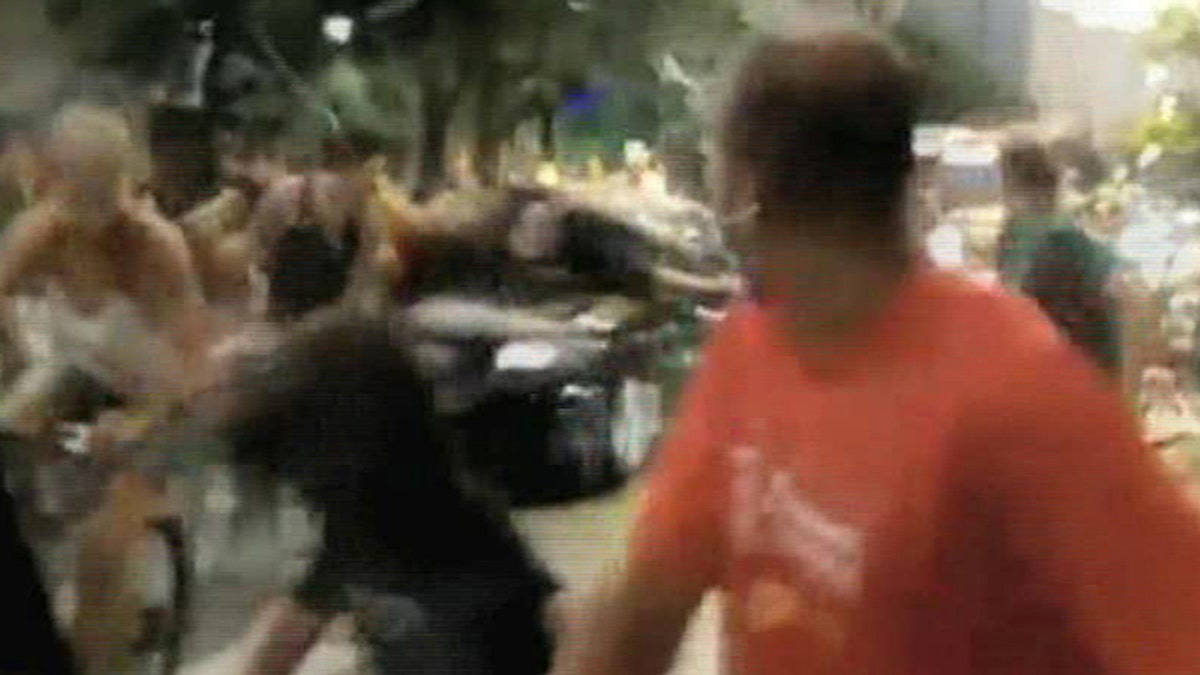
In this image taken from TV, showing the moment that a car drives into a group of cyclists in the city of Porto Alegre, Brazil, Friday Feb. 25, 2011. (AP)
SAO PAULO -- Prosecutors asked a judge Tuesday to order preventive detention for a motorist who ran down dozens of bike-riding activists in southern Brazil, injuring at least 40 people.
A statement from prosecutors said they are seeking to have the suspect, identified as Ricardo Jose Neis, jailed in anticipation of possible charges of attempted homicide. A ruling is expected within two days. Until then, Neis remains free.
Neis is accused of speeding through a pack of more than 100 cyclists taking part in a Critical Mass ride last Friday. Authorities say 40 riders suffered injuries like cuts and broken bones, though nobody was killed. The incident was captured on amateur video and posted online.
"It can be clearly seen that he ran over several innocent cyclists simply because they were blocking his way," prosecutors Eugenio Amorim and Lucia Callegari said in the statement.
Neis' attorney, Luis Fernando Coimbra, told Globo TV network's G1 website that the cyclists were beating on his client's car and threatening him, and he acted in self defense.
However, people who took part in the ride deny anyone threatened Neis, and the lead police investigator in the case, Gilberto Montenegro, has called the suspect's story "fanciful."
"He assumed the risk (of hurting people) when he used his car as a weapon," Montenegro told reporters.
The video of the incident shows a dark car accelerating through the slow-moving procession from behind, sending bikes and screaming riders flying through the air and landing hard on the asphalt. Thuds and sharp sounds of metal on metal are heard in the clip.
Authorities say Neis fled the scene and later abandoned his car, which was found Saturday. He came in for questioning by police Monday.
Under Brazilian law, suspects are not charged until police finish their investigation, which could take up to 30 days. Except in cases where suspects are caught red-handed committing a crime, a judge's ruling is required to imprison them before the filing of charges.
Critical Mass is a protest movement that has spread to much of the world. On the last Friday of the month, cyclists gather en masse and pedal slowly through city streets to promote bikes as a means of transportation and to try to raise motorists' awareness of safety issues.
Over the years, the protests have seen a number of sometimes violent confrontations between cyclists and frustrated motorists.
